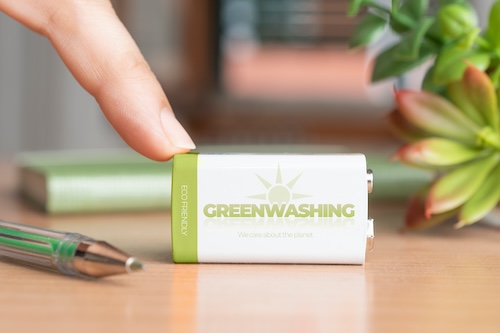Does Greenwashing Still Matter?
Table of Contents
- What is greenwashing?
- What UK legislation governs greenwashing?
- What are the civil liability risks associated with greenwashing?
- How can I avoid greenwashing?
- Final words
“Drill, baby drill.” President Donald Trump’s enthusiasm for oil and gas excavation, along with Rachel Reeve’s commitment to economic growth over net zero targets, may lull SMEs into thinking that the ‘E’ in ESG is no longer a critical concern. However, this would be a grave mistake, especially in terms of greenwashing. In 2024, the Financial Conduct Authority (FCA) and Competitions Market Authority (CMA) issued greenwashing guidance, the latter aimed at the fashion industry. In addition, the EU passed its Greenwashing Directive last year, and in February a proposal was published to water down environmental and other red tape and reporting requirements in an attempt to drive growth.
The short answer to the question proposed in this article’s title is yes, greenwashing definitely still matters. It is, therefore, crucial that business owners and compliance officers understand what greenwashing is and how to prevent it accidentally.
What is greenwashing?
Greenwashing is where consumers, suppliers, and investors are misled because an organisation exaggerates the positive environmental impact of a product, service, or its overall business activities.
Regulators and enforcement bodies have created independent definitions of greenwashing. For example, the Competition and Markets Authority (CMA) defines greenwashing in its Green Claims Code as environmental claims that suggest or create the impression that a product or service:
- Has a positive environmental impact or no impact on the environment;
- Is less damaging to the environment than a previous version of the same good or service; or
- Is less damaging to the environment than competing goods or services.
What UK legislation governs greenwashing?
The main Acts which contain greenwashing-related rules are:
- The Consumer Protection from Unfair Trading (CPUT) Regulations 2008 – protects consumers from unfair commercial practices, including misleading advertising and marketing.
- The Digital Markets, Competition and Consumers Act 2024 – expands the CMA’s powers and protects consumers from fake reviews and drip pricing.
- The Business Protection from Misleading Marketing Regulations 2008 – prohibits advertising that misleads traders (rather than consumers) and also regulates comparative advertising.
In addition, the Green Claims Code, the UK Code of Non-broadcast Advertising and Direct & Promotional Marketing (CAP Code), and the UK Code of Broadcast Advertising (BCAP Code) support the above legislation.
What are the civil liability risks associated with greenwashing?
Risk managers have to consider the potential for greenwashing-related civil claims, especially concerning a breach of:
- Section 90 of the Financial Services and Markets Act (FSMA) – allows investors who suffer a loss through misleading or untrue statements or omissions to make a claim against the person responsible for the prospectus or listing particulars that included the statements (or failed to include them).
- Sections 172 and 174 of the Companies Act 2006 – The former covers the duty to promote the success of the company; the latter states that directors must exercise reasonable care, skill, and diligence.
- Section 260 of the Companies Act 2006 – empowers company members to bring a derivative claim when seeking relief on behalf of the company from a cause of action arising from a director’s negligence, default, breach of duty, or breach of trust.
Company directors can also face civil claims if they misrepresent and/or make negligent misstatements that amount to greenwashing.
How can I avoid greenwashing?
The best way to avoid your organisation being accused of greenwashing is to be open and transparent in your communications. Use numbers rather than words to back up your claims and provide honest data that is visible to customers, suppliers, and investors.
It is also essential to set realistic goals. Making grand claims about reaching net zero may sound impressive, but if facts and data do not back up such statements, you risk reputational damage and civil claims.
In addition, any claims you make regarding the sustainability of your products or services must be unambiguous, with no room for confusion or misinterpretation. An example of this is claims made by the famous glass cleaning brand Windex. In 2019/20, it stated that its bottles were made from 100% ‘ocean plastic’. This may make you think that the owner of the Windex brand, SC Johnson, sent employees sailing around the world’s oceans collecting plastic to use for its packaging. But in truth, the plastic used to make Windex bottles never came from the ocean. Instead, it was taken from plastic banks in Indonesia, the Philippines, and Haiti, referred to as ‘ocean-bound’ plastic because it is likely to end up in the ocean.
Final words
Although certain governments may be downplaying net-zero commitments and the green economy, consumers, investors, and regulators remain committed to holding companies who greenwash to account. If you are unsure about whether particular marketing or advertising content may amount to greenwashing, talk to an experienced Commercial Law Solicitor who can advise you.
To instruct one of our Commercial Law Solicitors, please fill in our contact form or email us at [email protected].

